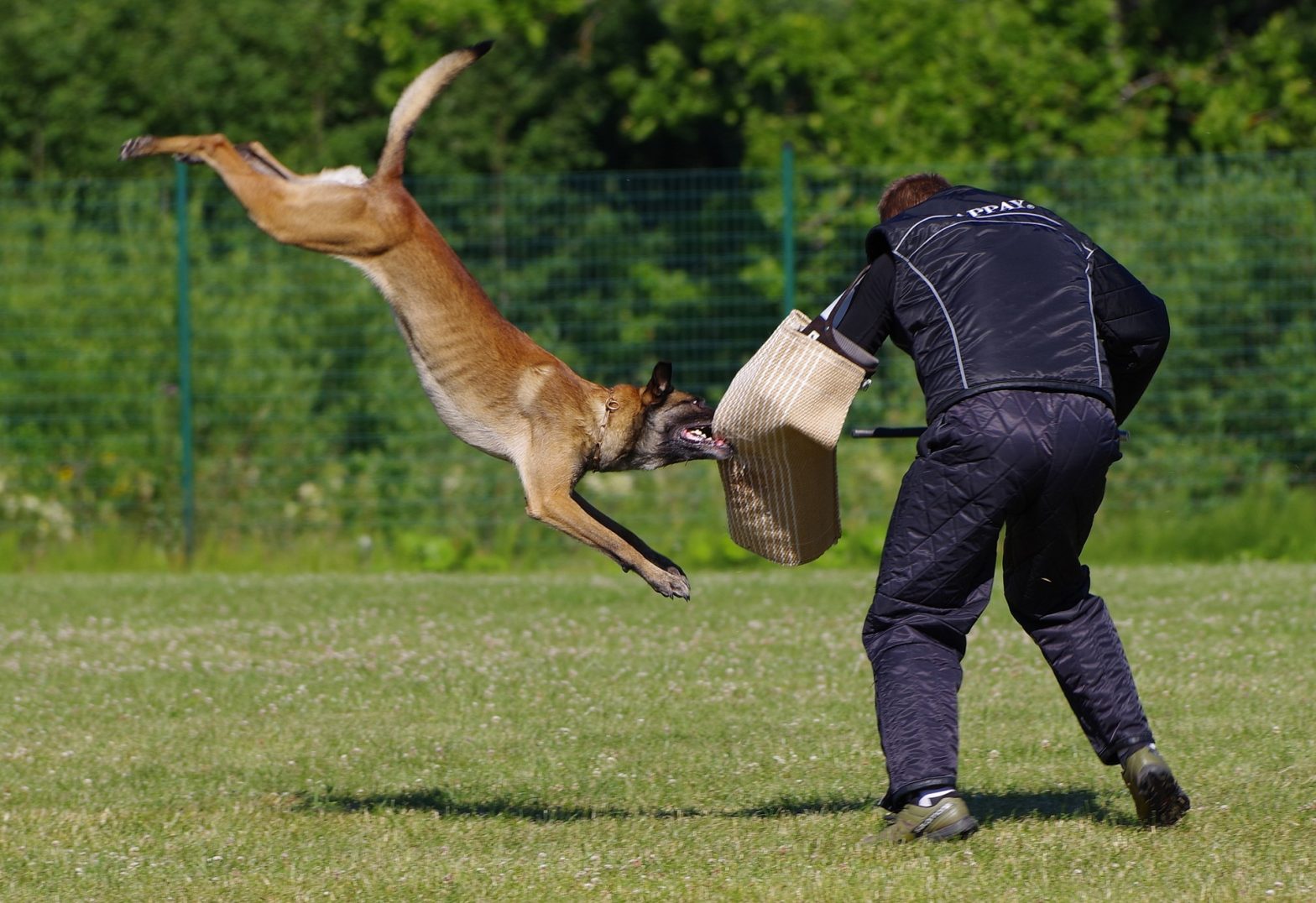Legislation intended to severely limit the use of attack-trained patrol dogs in Virginia state prisons is set to be introduced by two lawmakers from Virginia.
Business Insider (BI), a multinational business news website, reported that Virginia prisons have used patrol dogs to attack 271 inmates between 2017 and 2022—the highest number in any state—and served as a catalyst for the legislative campaign.
The attacks, which served to break up fights, enforce discipline, or assist in cell extractions, left many prisoners maimed and traumatized. In that same period, only seven other states deployed attack-trained dogs on prisoners. Arizona, which ranked second in the number of recent deployments, attacked only 15 prisoners during that time.
One of two bills that would significantly restrict attack-trained patrol dog use in Virginia prisons has been authored by Michael Webert, the Republican majority whip of the Virginia House. Webert’s bill will prohibit the deployment of patrol dogs to attack people during cell extractions and will bar their use in smaller fights or altercations—those involving three or fewer prisoners—except in the event of an “imminent threat of death or serious bodily injury” to incarcerated people or prison staff.
Webert emphasized the bill’s goal to strike a balance between protecting the safety of corrections officers and inmates while reducing the use of patrol dogs in Virginia prisons. He sees the proposed legislation as an opportunity for the Virginia Department of Corrections to align with best practices learned from law enforcement canine handlers without compromising safety.
Holly Seibold, a Democratic delegate in the Virginia House, has also expressed her intention to submit legislation addressing the use of patrol dogs in Virginia state prisons. She emphasized that the stories emerging from Virginia depict troubling human rights violations causing lasting injuries and trauma, deeming it unacceptable to weaponize animals to attack people. Seibold criticized the state’s current practice, highlighting that no other state deploys canines to attack inmates at the rate Virginia does.
Both legislators plan to introduce their bills by January, with potential impacts on high-security prisons where patrol dogs are routinely deployed: Sussex I, Sussex II, Keen Mountain, Wallens Ridge, Red Onion, and River North.
Incident reports obtained by the BI indicate that at least 18 men incarcerated at these facilities have been treated for injuries resulting from dog attacks since 2017, including muscle and tissue damage or septic infections. Many others suffered from psychological trauma for extended periods after the attacks.
The reports also revealed that patrol dogs in Virginia attacked at least six corrections officers from 2017 to 2022, with some bites being severe and requiring emergency medical treatment.
The Virginia Department of Corrections does not comment on proposed or pending legislation, said Kyle Gibson, the director of communications.
Debate Over Prison Dogs: Safety Measures
Those who advocate for the employment of attack-trained patrol dogs assert that attack-trained dogs contribute to the safety of both prisoners and staff. In 2021, Rick White became the warden at Red Onion State Prison. He previously explained to BI that the primary use of patrol dogs is for “presence.” The dogs’ bared teeth and growls often prevented many violent incidents by indicating a perceived threat.
White stated that the canine program at Red Onion established a secure environment for group educational and religious programs.
However, some corrections experts hold a different view, contending that patrol dogs are unnecessary for maintaining facility safety and security. Kathleen Dennehy, the former corrections commissioner for Massachusetts, expressed strong opposition, deeming the use of dogs to enter cells for disarming or forcing compliance a violation of human rights.
In recent years, at least 23 prisons in eight states, including Virginia, have deployed attack-trained patrol dogs against prisoners. Notably, the majority of the over 370 maximum-security prisons in the US do not utilize attack-trained dogs at all. Advocates who are in favor of new legislative initiatives have emphasized this fact.
Kim Bobo, the executive director of the Virginia Interfaith Center for Public Policy, an advocacy organization promoting legislative reform to Virginia’s prison patrol-dog program, urged an end to what she termed the “barbaric practice” of using attack dogs to intimidate and bite incarcerated individuals. She emphasized that other states operate prisons safely without resorting to attack-trained patrol dogs, and Virginia should follow suit.
Source: https://www.businessinsider.com/legislation-curb-patrol-dogs-in-virginia-prisons-2023-12
Image source: Image by Vilve Roosioks from Pixabay
